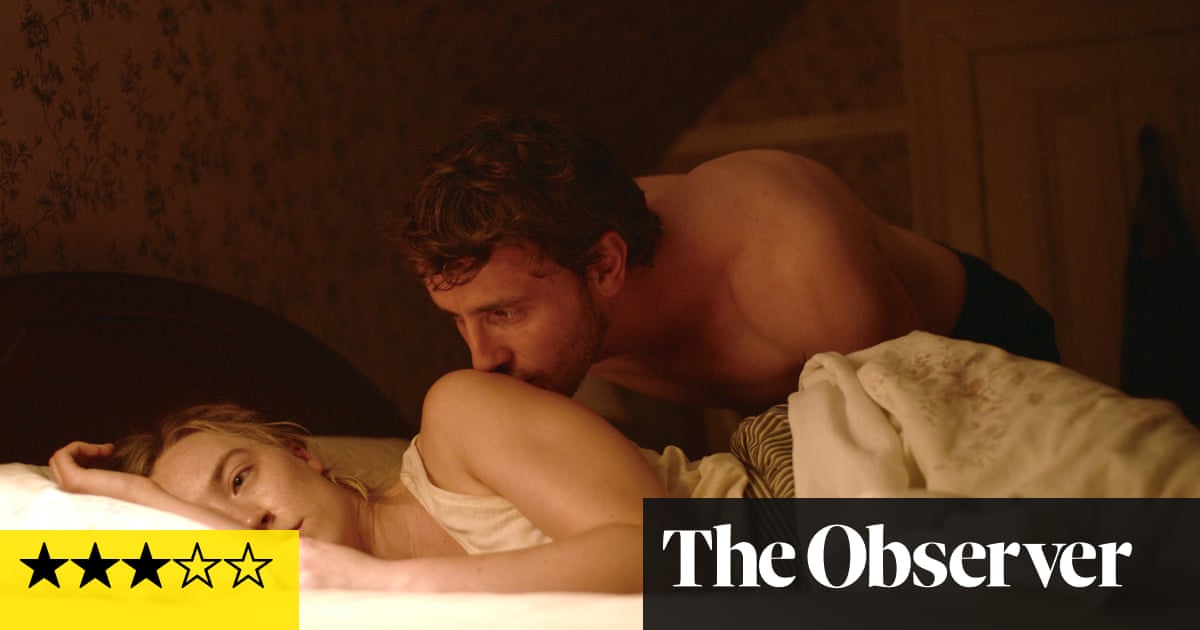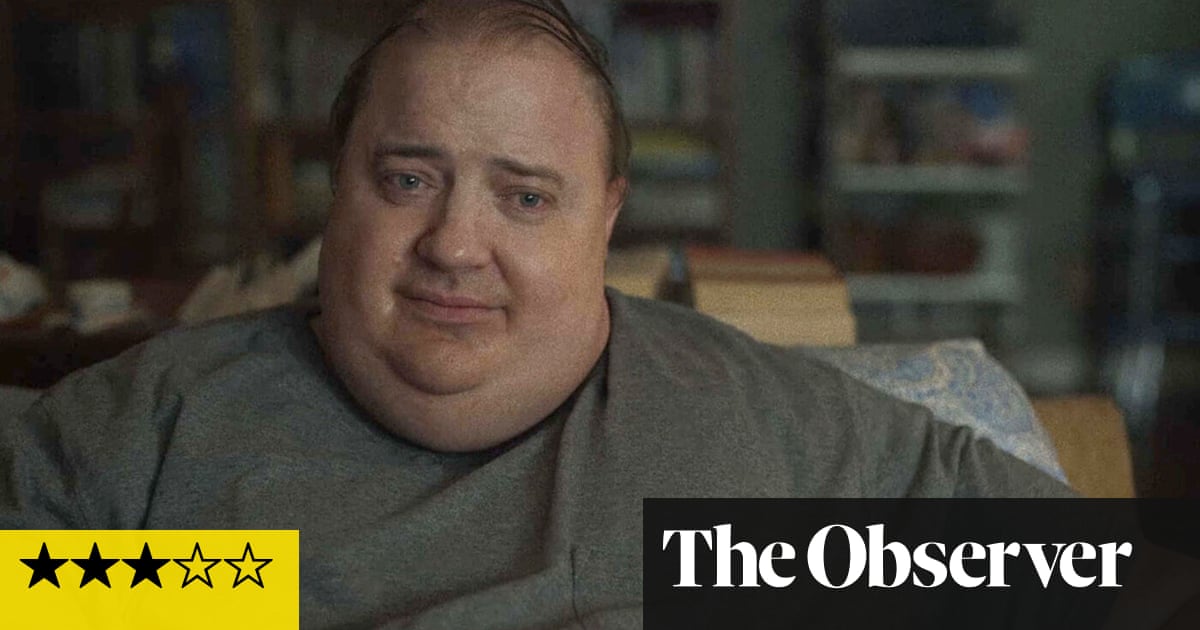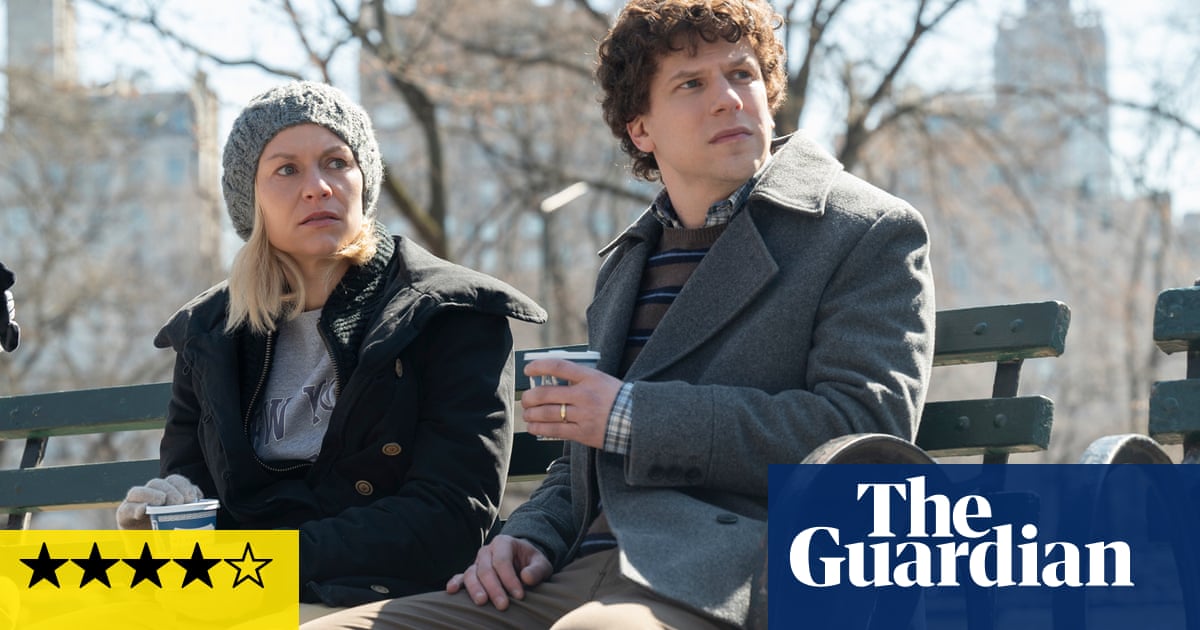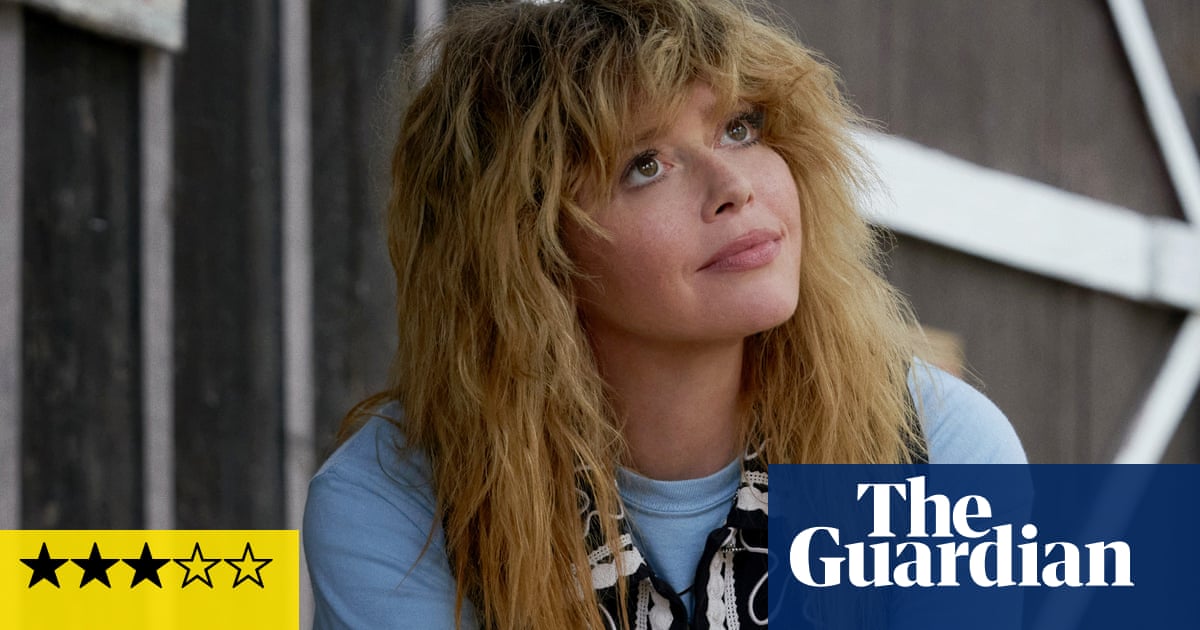
The title means an outlying coastal piece of farmland on Orkney; it is not suitable for cultivation, but so continually windswept with Atlantic spray that its grass stays short as if naturally tended, and so functions metaphorically in various ways. It could be a wholesome, bracing, healing place for troubled city dwellers; or a place whose restorative quality is an illusion, a place every bit as violent and mysteriously destructive as the city; or it could even somehow stand for the actual person who has come there, the low-functioning addict, shaped and flattened by forces all but impossible to outrun.
Saoirse Ronan is outstanding in this painful, involving addiction-recovery drama, directed by Nora Fingscheidt and adapted by Fingscheidt and Amy Liptrot from Liptrot’s own 2017 memoir of the same title and co-produced by Ronan with her husband Jack Lowden. Ronan plays Rona, a young woman born in Orkney who has been living in London as a postgrad student, where her joy in her freedom has been succeeded by alcohol abuse and depression. Her relationship with the tender, caring Daynin (Paapa Essiedu) is poisoned by her toxic addiction and she gets into a terrifyingly vulnerable and violent situation.
But after rehab, and at the very tail end of her troubled 20s, she agrees to go home to Orkney and the chastened former party animal gets a volunteer post with the RSPB on the island trying to protect corncrake habitats. Ronan’s unassuming scenes with the RSPB, apparently using non-professional actors, are the very best thing in this very good film – better, for me, than the slightly self-consciously dreamy voiceover passages about Orkney mythology, selkies and various legendary creatures, sometimes accompanied by animation.
Orkney is not sentimentalised as a rural place of innocence. The feeling of being all alone in a wind-lashed cottage is fervently conveyed (I thought of Ted Hughes: “This house has been far out at sea all night”) The islands are shown to be beautiful but intimidating, with a challenging unanswered question in the peace and quiet. And Rona has to come to terms with her troubled family background. Her dad and mum, Andrew and Annie – the excellent Stephen Dillane and Saskia Reeves – have separated due to Andrew’s bipolar episodes, exacerbated by drinking, which have resulted in him selling the farmhouse and living in a chaotic caravan; Annie for her part has found Christianity. Rona is uneasy with both, and with the unprocessed realisation that her own passion and capacity for euphoria, as well as her addictive personality, is something that she has taken from her dad, either by nature or nurture; and the awful truth is that to survive she might have to cut him loose, just as her mother has done. Is that why Rona has come home?
In every shot and every scene, mostly in closeup, Ronan carries the film with her unselfconsciously fierce and focused presence. Out-of-control-drunk acting in montage is a difficult thing to bring off – as is the representation of precarious sobriety – but she does it with intelligence and plausibility. There is a powerful moment when Rona confesses in her 12-step group that what she mostly feels is a passionate longing for the happiness of being drunk. Later, in an Orkney shop, Fingscheidt allows us to register a visually unemphasised row of bottles behind the shopkeeper while Rona is buying food and her blank, composed remark to him that, no, she doesn’t want anything else. It is a considerable performance.
The Outrun is in UK cinemas from 27 September.












